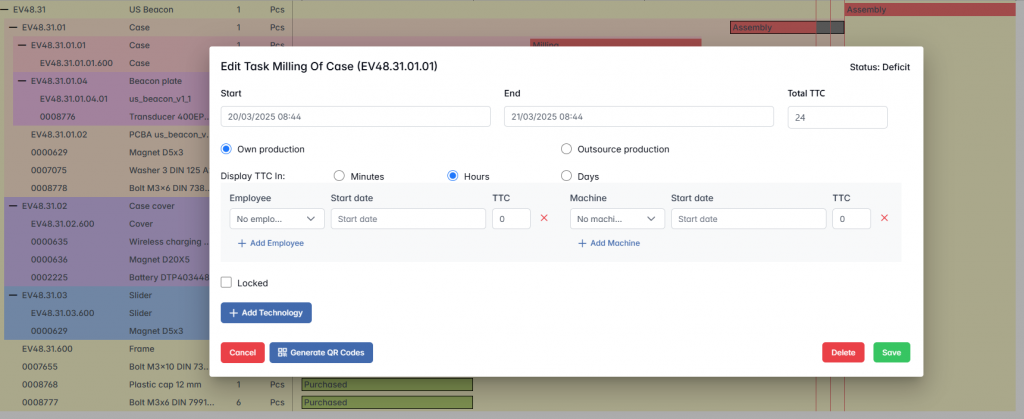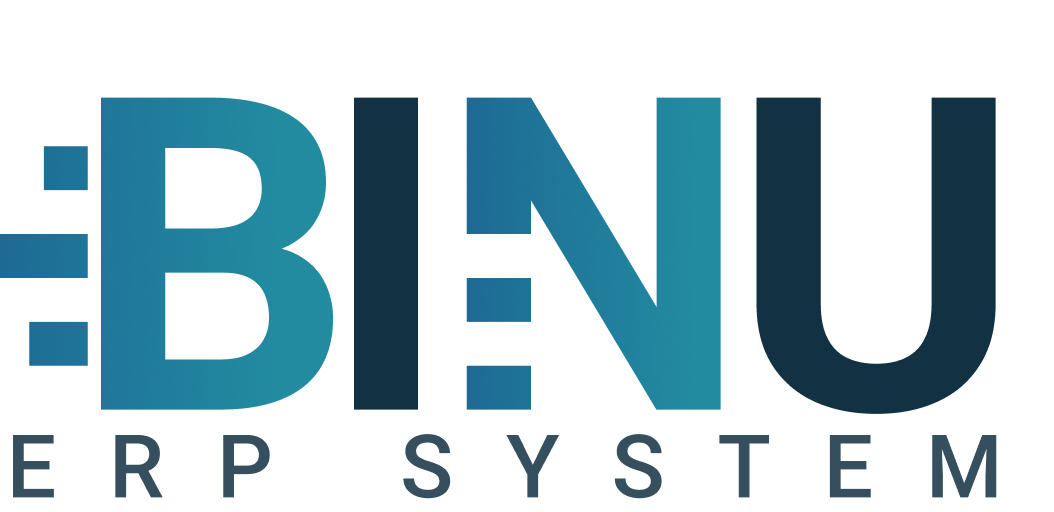Table of Contents
1. Introduction
How ERP Systems Improve Production Scheduling in Manufacturing is a crucial topic for manufacturers looking to optimize efficiency, reduce downtime, and improve overall productivity. ERP systems streamline production scheduling, optimize workflows, and provide advanced tools to manage manufacturing processes. This article explores how ERP systems enhance production scheduling, reduce downtime, and boost productivity.
2. The Role of ERP Systems in Improving Production Scheduling in Manufacturing
ERP systems integrate all aspects of manufacturing, from supply chain management to production planning and workforce allocation. A robust ERP solution eliminates the need for manual scheduling and provides real-time visibility into production processes. With tools such as automated scheduling, demand forecasting, and Gantt chart visualization, ERP systems enable manufacturers to optimize production schedules effectively.
3. Key Features of ERP for Production Scheduling in Manufacturing
1. Gantt Charts for Visual Planning
Gantt charts provide a graphical representation of production timelines, helping managers track task progress and resource utilization. By using Gantt-style production planning, manufacturers can:
- Visualize production phases and dependencies
- Identify and mitigate scheduling conflicts
- Allocate resources efficiently
2. Automated Scheduling for Efficiency
Manual scheduling is prone to human errors and inefficiencies. ERP systems automate production scheduling by:
- Assigning tasks based on resource availability
- Automatically adjusting schedules based on changes in demand
- Reducing idle time by optimizing workflow sequences
3. Demand Forecasting for Inventory Management
An ERP system ensures that manufacturers produce only what is needed, reducing waste and improving efficiency. Features include:
- Real-time data analysis to predict demand trends
- Automated inventory restocking alerts
- Just-in-time (JIT) manufacturing support
4. Benefits of ERP in Production Scheduling
By leveraging ERP for production scheduling, manufacturers can reduce downtime and eliminate bottlenecks, leading to smoother production processes and a more efficient manufacturing workflow.
- Reduced Downtime and Bottlenecks: ERP software helps eliminate production delays by ensuring seamless communication between departments. Real-time monitoring detects potential bottlenecks before they cause disruptions.
- Improved Resource Allocation: ERP solutions provide real-time insights into machine availability, workforce capacity, and material supply, allowing managers to allocate resources optimally.
- Enhanced Collaboration and Communication: By integrating all departments into a single platform, ERP systems improve coordination between production teams, warehouse managers, and procurement officers.
5. ERP for Manufacturing: Optimizing Production Scheduling
ERP systems play a crucial role in improving production scheduling in the manufacturing industry. By integrating planning, inventory control, and real-time monitoring, manufacturers can optimize efficiency and reduce waste.
Some key ways ERP benefits production scheduling in manufacturing include:
- Seamless workflow automation: Reduces manual intervention, ensuring tasks are assigned and completed on time.
- Inventory synchronization: Helps manufacturers track raw materials and finished goods to avoid stock shortages or overproduction.
- Data-driven decision-making: ERP analytics provide insights into production efficiency, helping manufacturers fine-tune their scheduling strategies.
- Scalability: ERP solutions can be customized to meet the needs of small, medium, and large manufacturing businesses.
Binu ERP, for instance, offers features tailored for manufacturing businesses, including Gantt-style production planning, automated production requests, and transparent reporting. Manufacturers using Binu ERP benefit from real-time scheduling insights, improved resource allocation, and seamless supply chain integration. To learn more, visit Binu ERP.

Image: Binu ERP production planning
6. Frequently Asked Questions (FAQ)
- What is ERP production scheduling? ERP production scheduling is the automated process of planning, organizing, and optimizing manufacturing tasks using ERP software.
- What are the key features of ERP for production scheduling? ERP systems come with several key features that enhance production scheduling: Gantt Charts for Visual Planning, Automated Scheduling, Demand Forecasting and Resource Allocation.
- How does ERP reduce downtime? By providing real-time insights and automated scheduling, ERP systems prevent bottlenecks and minimize idle time.
- What are the benefits of ERP in production scheduling? Reduced Downtime and Bottlenecks, Improved Resource Allocation and Enhanced Collaboration.
- Does ERP software support real-time scheduling? Yes, ERP solutions provide real-time data and updates to help manufacturers adjust schedules dynamically.
- How does ERP improve collaboration in manufacturing? ERP integrates communication between departments, ensuring seamless coordination of production tasks
- How does ERP optimize production scheduling? ERP systems optimize production scheduling by automating processes, reducing manual intervention, and offering tools such as real-time monitoring and demand forecasting. This ensures that tasks are assigned on time, inventory is managed effectively, and production flows smoothly without disruptions.
- What industries benefit the most from ERP production scheduling? Industries such as automotive, aerospace, electronics, and consumer goods manufacturing benefit significantly.
- Why is it good to use Binu ERP for production scheduling? Binu ERP offers tailored features for manufacturing businesses, including Gantt-style production planning, automated task assignments, and transparent reporting. It allows manufacturers to optimize resource allocation, track production progress in real-time, and seamlessly integrate with supply chain processes, making it an ideal solution for efficient production scheduling.
- How can I get started with Binu ERP? Getting started with Binu ERP is simple. Visit Binu ERP to book a free demo. We offer a 3-month free trial to help you explore how Binu ERP can streamline your production scheduling and improve your overall manufacturing processes.
7. Conclusion
ERP Systems Improve Production Scheduling in Manufacturing is essential for modern manufacturers looking to optimize production scheduling and improve efficiency. With features like Gantt chart planning, automated scheduling, and demand forecasting, ERP solutions minimize downtime and enhance resource allocation. By implementing an ERP system, manufacturers can ensure smoother operations, reduced costs, and improved productivity.
Binu ERP provides specialized tools for production scheduling, making it a valuable choice for manufacturing businesses. To explore Binu ERP’s capabilities, visit rwave.eu.

